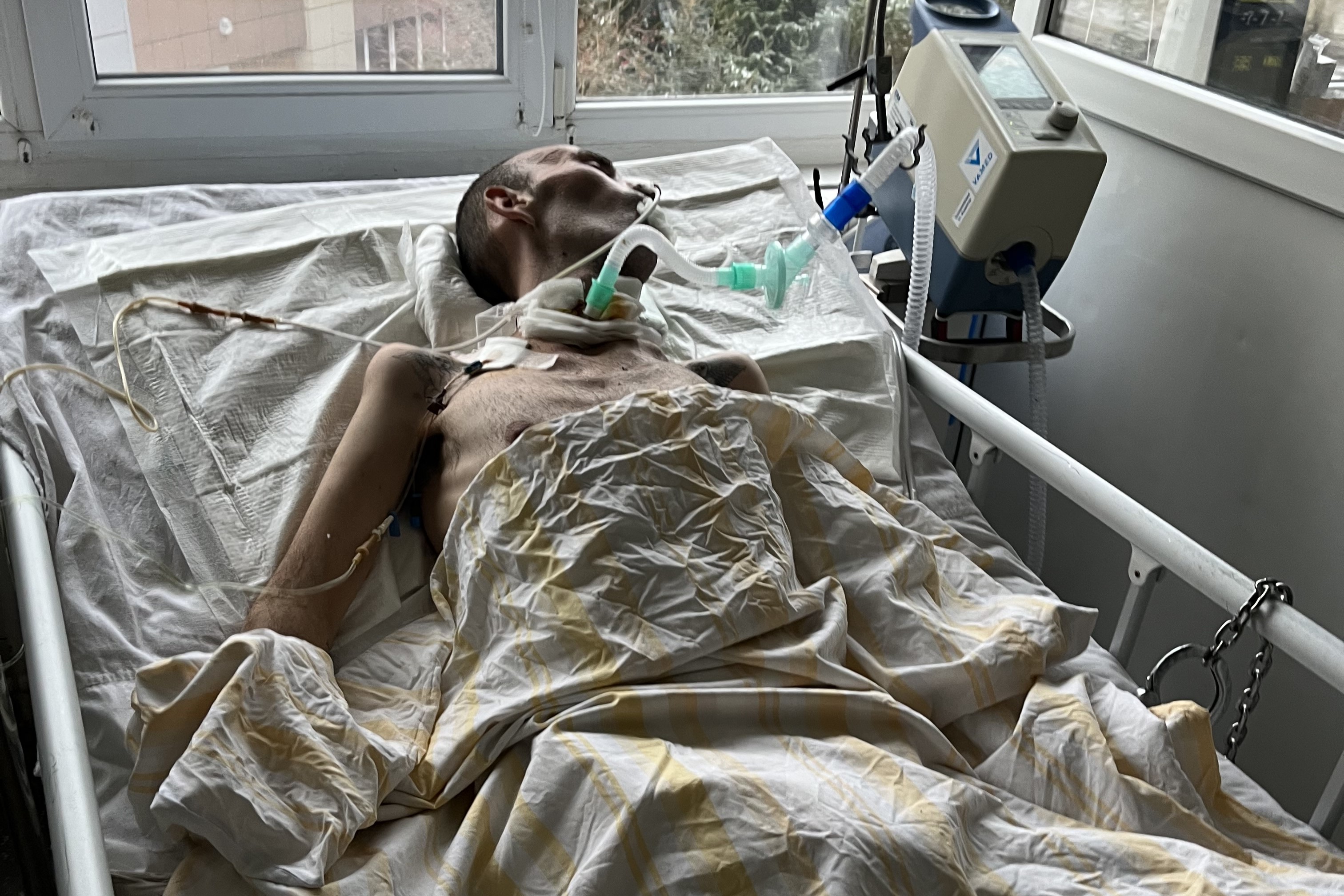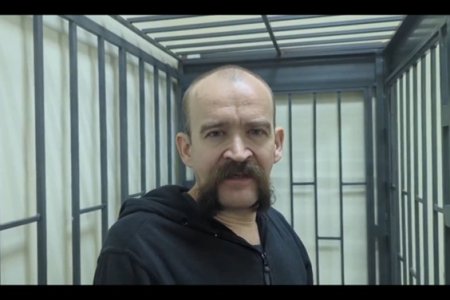
Serhiy Trotsky has died in hospital less than a month after his 35th birthday. He had spent over two months in a prison hospital, unable to speak, move, or even to brush away the flies landing on his face. He had received no treatment after savage beating by prison staff left him with a grave brain and skull injury, and judging by the reported stench, had not received even the most basic care. Not only did the Penitentiary Service and the staff at Sofiiska Hospital No. 45 make no effort to save Serhiy’s life, but they even lied about the real reason for his hospitalization, claiming he was suffering from ‘acute bronchitis’.
Trotsko’s mother contacted the Kharkiv Human Rights Protection Group [KHPG] in October. Her son had never had any health issues, yet he was now in a grave condition in the Sofiivska Multidisciplinary Hospital No. 45, a notorious ‘hospital’ within the health service of Ukraine’s Penitentiary Service in the Dnipropetrovsk and Donetsk oblasts. According to Andriy Didenko, who has been monitoring penitentiary institutions for many years, this so-called hospital is of very ill-repute and even gets nicknamed ‘the morgue’ with prisoners effectively sent there to die. There is a critical shortage of medical staff with nobody wanting to go to a prison hospital so far from anything and with such a reputation.
Serhiy had had several convictions for petty theft or burglary, and in late November 2020 received a four year and three month sentence, seemingly over the theft of a television, with this to be served in the Kropyvnytsky Corrective Colony No. 6.
There was a further sentence of just over three years from a court in Kropyvnytsky on 18 April 2022 over an alleged attempt on 3 December 2021 by Trotsko to break out of the prison colony. The charge was at very least odd as any prisoner would have known that there was no chance of escaping from a heavily guarded prison colony by climbing on the roof of the vocational training centre in broad daylight. Serhiy was supposed to have climbed up there at 11.20 and been there for all of 28 minutes.
The court ruling said that Trotsko had admitted guilt and reached an agreement with the prosecutor. What really happened that day may now never be known, but Didenko writes that it is known that Trotsko was savagely beaten in one of the ‘DIZO [‘disciplinary isolation] cells of the corrective colony by prison staff. While at Hospital No. 45, he was able, through signs, to indicate that his attackers had kicked him. This corresponded to the huge indentation on the side of his temple which appeared to be from a man’s boot.
It is clear that Trotsko badly needed proper medical treatment, yet instead all efforts were made to conceal the beating and he was moved to Corrective Colony No. 93 in Mykolaiv oblast.
In fact, the beating had been so savage that this didn’t work. He became so unwell that he was moved to the Dnipro Multidisciplinary Hospital No. 4, where he was given Group II disability status. From there he was moved to Sofiivska Multidisciplinary Hospital No. 45.
It was after Serhiy’s mother contacted KHPG that a monitoring visit was carried out by two MPs’ advisers, including Didenko, a member of the Public Council under the Justice Ministry and Kostiantyn Zaporozhtsev, a doctor and forensic specialist.
During that visit on 19 October, Zaporozhtsev examined Trotsko and found that he had a grave skull and brain injury. There was nothing in the documentation to suggest that any diagnostic measures had been taken, nor any attempt to provide x-rays, consultation with specialists, nor any treatment.
Quite the contrary, it transpired, as the medical documents claimed that Serhiy Trotsko was at No. 45 due to “acute bronchitis”. There was nothing in the medical documentation about daily visits from a doctor, although on 19 October, he had already been at No. 45 for 15 days. There were only readings for blood pressure, etc. however these seemed to have been issued a day in advance (for 20 October).
All of this was reported by KHPG, and a direct appeal issued to the Prosecutor General, the Penitentiary Service and the Human Rights Ombudsperson. The appeal made it quite clear that Serhiy Trotsko’s life was in critical danger and that immediate action was needed.
It is now too late to save Serhiy Trotsko, however action is most certainly required. This is for Serhiy’s sake, and that of many other victims of appalling crimes committed by Penitentiary Service employees; dereliction of duty by Penitentiary Service medical staff and Ukraine’s ongoing failure to heed and respond to damning judgements by the European Court of Human Rights. It was such judgements that Finland’s Supreme Court cited on 8 December when it stated that Finland cannot extradite notorious Russian neo-Nazi Rusich fighter Jan Petrovsky (‘Voislav Torden’) to Ukraine to face warranted trial on effective war crimes charges.
Ukraine has committed itself to comply with the absolute prohibition of torture, the right to life and other rights enshrined in the European Convention on Human Rights and other documents of international law. It failed Serhiy Trotsky both by allowing, and then concealing, his savage beating, while a prisoner of the state, and by failing to provide for proper, in this case, life-saving, medical care.



